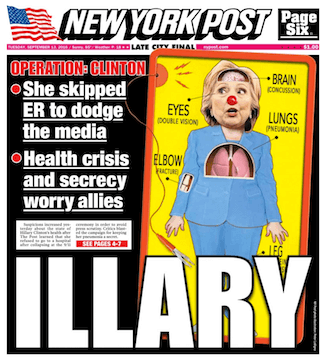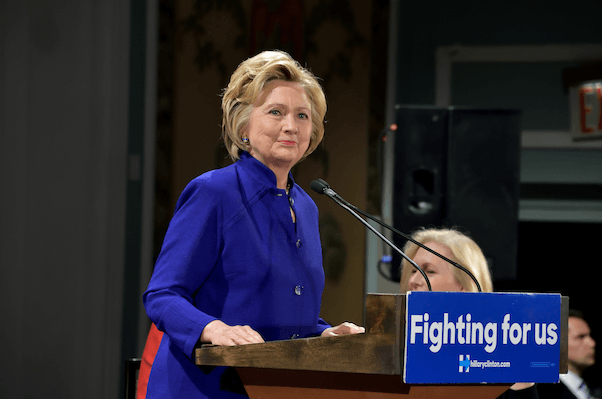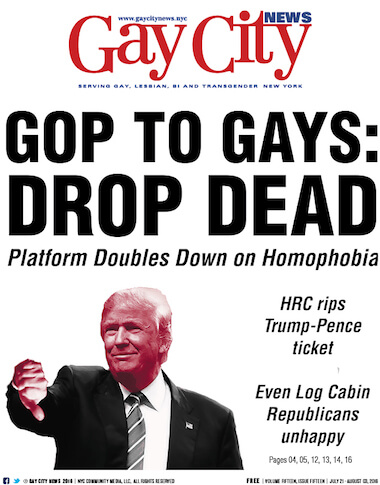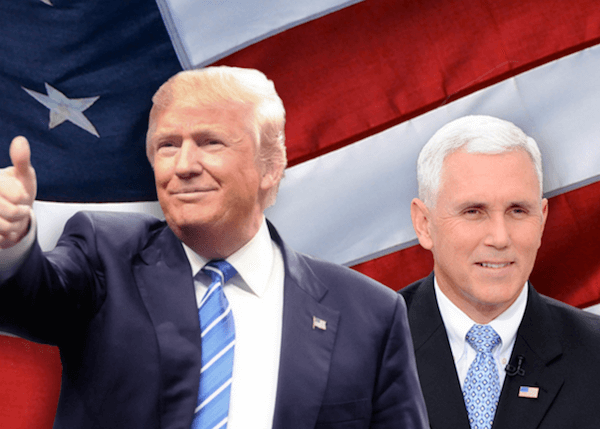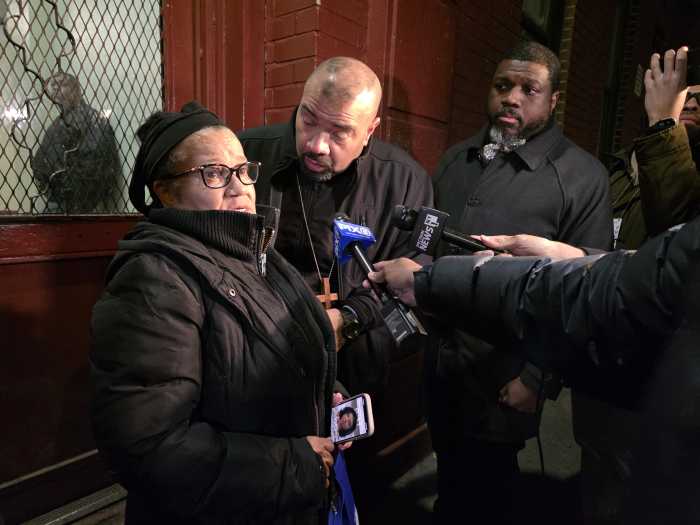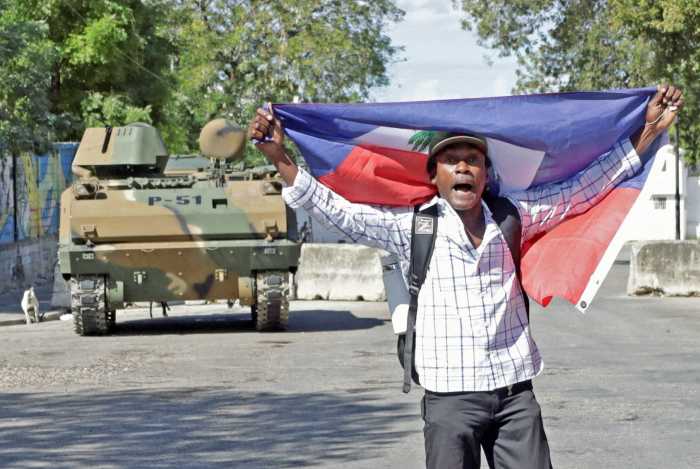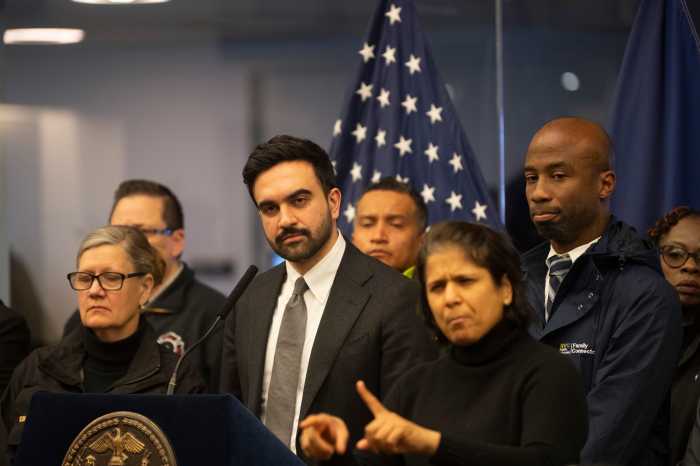It would be reassuring if all this were just a problem at the Post.
The front page of Monday morning’s New York Post, under the headline “HILL HEALTH CRISIS,” offered up frame captures from video shot the day before showing Hillary Clinton stumbling as she was helped into a van during 9/11 memorial services. By the time the Post produced this cover, we all knew why Clinton appeared the way she did. She had pneumonia, diagnosed two days earlier. In the intervening 48 hours, she had convened a meeting on national security, attended a major fundraiser, and spent an hour or so at the World Trade Center site. She probably shouldn’t have. She probably should have taken a few days off to recuperate –– and explained just why she was doing so.
Still, a diagnosis of pneumonia –– the severity of which didn’t much get in the way the day she received it or the next –– hardly seems to warrant the term “health crisis.” At least not until we know a whole lot more about dire symptoms, if they exist.
By the next day, the Post was in full yellow rag mode. Clinton’s ailment remained a “health crisis,” one compounded by her “secrecy” in not going to an emergency room –– to “dodge the media,” don’t you know. The newspaper also presented an anatomical cut-away of a blue-pant-suited Clinton, with pneumonia-filled lungs, a brain concussion and double vision in her eyes –– um, in the immediate wake of a 2012 fall –– a right elbow fracture from sometime (maybe the same fall), and something going on with her left leg, the details of which were obscured by the title “ILLIARY.”
It would be reassuring if all this were just a problem at the Post.
LETTER FROM THE EDITOR
On Sunday, journalists came out of the woodwork complaining about being kept in the dark about Clinton’s pneumonia. Politico, in a story titled “Press rips Clinton campaign's handling of health incident,” quoted a tweet from the Times’ Jonathan Martin pointing out that Clinton learned of her illness Friday, but only “disclosed after this am’s episode.” CNN’s Brian Stelter seemed less concerned with not knowing on Friday and Saturday, but was bewildered by why he had to wait for five hours after the stumble Sunday to learn the truth. “I don’t understand why Clinton aides weren’t telling reporters at 10:30am: ‘pneumonia,’” he wrote.
For Chuck Todd, the whip-smart and generally sober “Meet the Press” host, the issue was the type of illness Clinton had: “Of course they should have disclosed this. This isn’t a cold.” But it’s not a brain tumor, either, a point lost on one of Todd’s Sunday morning guests, former NBC anchor Tom Brokaw, who saw the video clip and rushed out his medical advice: “I think that she should go to a hospital, see a neurologist, and get a clean report if it is available.” Brokaw pointed to dark rants Rudy Giuliani has lately been making about Clinton’s health, in which he directs listeners to dummied-up online video of the Democratic candidate that suggests she’s experiencing seizures and worse.
Brokaw wasn’t alone in weighing, in even-handed fashion, the reality of Clinton’s health against preposterous and scurrilous innuendo coming out of the Trump campaign. “There is always an emphasis on the need to simply take Clinton’s word for it,” wrote Chris Cillizza, a Washington Post reporter on par with Todd smarts-wise. “Trust her that all of the emails that were deleted permanently from her server were purely personal. Trust her that any appearance of pay-to-play with donors to the Clinton Foundation is purely coincidental. Trust her that everything is A-okay with her health after the incident Sunday.” What Cillizza is basically arguing here is that in light of pneumonia undisclosed for 48 hours, all the nonsense from the Trump camp is now in play.
By Monday, things had gotten absurd. David Shuster –– who once had a real career with MSNBC (though he stirred a bunch of shit in 2008 arguing Chelsea Clinton is fair game for reporters’ questions with the unfortunate claim she was, after all, being “pimped out” by her mom) –– was tweeting, “DNC delegate: If @HillaryClinton withdraws, every indication now committee will vote to replace with Biden. @BernieSanders team scrambling.”
Huh?
But it wasn’t just journalists with a history of tough talk about Hillary who were throwing their standards out the window. On NPR, Cokie Roberts asserted that some leading Democrats were “nervously beginning to whisper about having her step aside and finding another candidate.” That’s before Roberts said, “I think it’s unlikely to be a real thing.”
Again, huh? Which is it?
The problem here is not journalists being too tough on Clinton. The issue is their near inability to play any role whatsoever in lending meaningful context to their reporting, and thus to our national discussion during a presidential election. Clinton has been no model of transparency, and she didn’t handle disclosure of the pneumonia well. But, hewing to an absurdly simplistic –– but sacred –– notion of equivalency, too many in the media are willing to credit Trump’s birther/ swiftboating crap about Clinton’s health with the same credence given the actual facts of the matter.
And that’s a microcosm of the press’ failure on Trump overall. How would he keep Muslims out of the US and to what effect? How much would the Wall cost and what would it achieve? Is he hardening or softening on immigration? Who are the “some people” and “many people” in the “some people are saying…” and “many people are writing” references he habitually makes?
A conventional take on Trump’s candidacy is that it has always been underestimated, that he survives stumbles and outrages that would doom mere mortals. A big part of why is journalists’ irresponsible refusal to hold him accountable for what he says and does and to provide even the barest factual context for evaluating the stark differences presented by our two choices for president.

